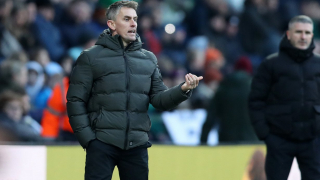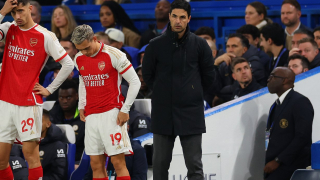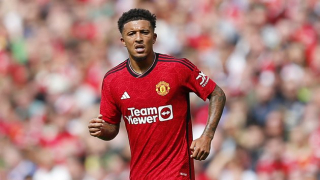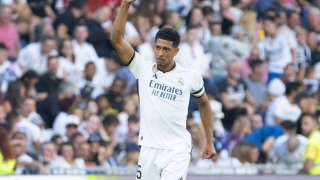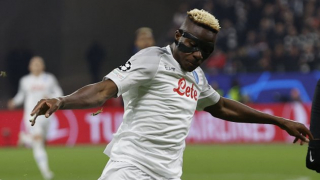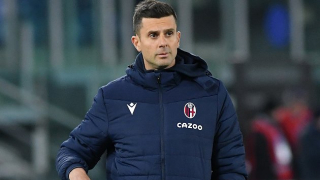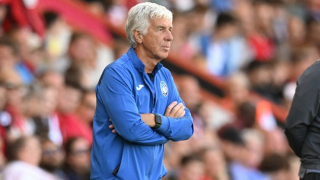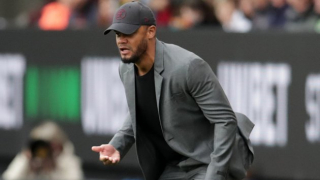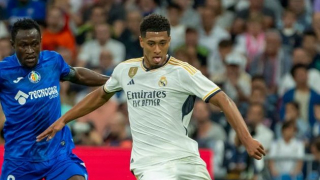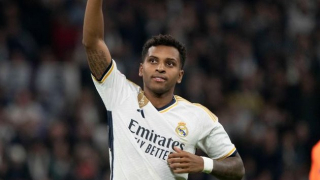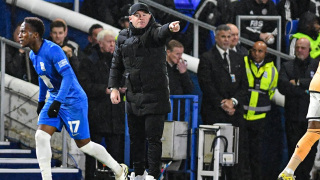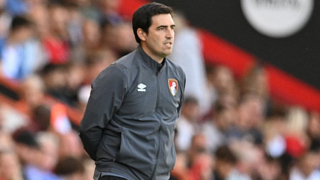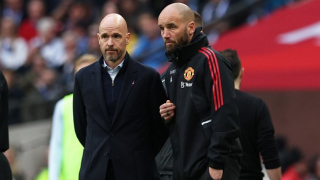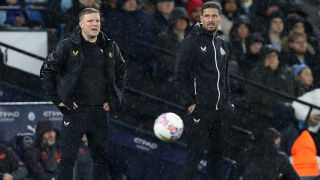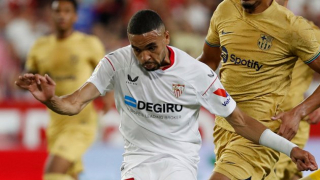You may not have heard, but England are in a major final for the first time since 1966. Wednesday night's 2-1 win over Denmark was a game full of ups and downs, momentum swings. And it ended in appropriately dramatic fashion: Harry Kane rebounding his own missed penalty into the net, in extra time.
England are in Sunday's showpiece event, at Wembley, where they will face Italy. Here's how they got there.
ENGLAND UNDER PRESSURE: FROM DENMARK, AND PICKFORD
Set up in their preferred 4-2-3-1, England had time to play out from the back. However, they came under pressure after sideways passes along the line or on passes into midfield. Denmark shaped up defensively in their customary 5-4-1, with a compact middle four.
Wingers Martin Braithwaite and Mikkel Damsgaard helped lone striker Kasper Dolberg when pressing forward, with Damsgaard doing a particularly good job when Harry Maguire passed sideways to John Stones, stepping up in such a way to cut off the pass out to Kyle Walker at right-back. Unable to find Walker and with Maguire under pressure from Dolberg, Stones often had to go back in these situations.
Another common theme was individual raids from one of Denmark's two midfielders, Pierre-Emile Hojbjerg or Thomas Delaney. If England played into midfield, Hojbjerg and Delaney would press the receiver, stop them from playing forwards, then step up and continue to press on the back-pass. Sometimes this meant England going all the way back to Jordan Pickford, who did not look composed on the ball and went long at the slightest sign of pressure.
Nervousness emanated throughout Pickford's performance. On a few occasions, he gave his team more trouble than Denmark's organised pressing did. Whether distributing from hand or foot, he more than once handed the ball to the opponent in a dangerous position.
In the first half-hour, the match was even. England shaded possession, but struggled to do much with it. Denmark were forcing them back, and pouncing on mistakes to counter. Walker, as he has done throughout this tournament, had to save his team several times with his speed to get back and nullify the fast breakaway. But there was nothing he, nor his teammates, could do about Damsgaard's stunning free kick goal on the 30-minute mark. 1-0 Denmark.
KANE MOVEMENT KEY TO EQUALISER
Harry Kane was again responsible for leading England's frontline, though as usual he didn't remain up front. Rather, he constantly withdrew into midfield to receive the ball to feet between the lines. The great thing for Kane in this 4-2-3-1 system is that he has lots of runners around him to distract opponents away from him: here it was Bukayo Saka from the right, Raheem Sterling from the left, and Mason Mount through the middle.
In the 15th minute we saw a small glimpse of how hard it would be for Denmark to cope with this. Sterling ran behind the last line and dragged the defenders back, freeing up Kane to receive from Walker. Able to turn, he blazed high over the bar from just outside the box. It wasn't a good attempt on goal by his standards, but the warning shot had been fired.
Hojbjerg and Delaney had a lot to think about in this game. Not only did they have to put pressure on England's midfield duo of Kalvin Phillips and Declan Rice, but they had Mount buzzing around them too. Kane coming short was often too much for them to deal with, and this movement ultimately led to England's equalising goal.
In the 39th minute, Kane withdrew into the space between Hojbjerg and Delaney, receiving the ball from Walker and controlling with his backfoot to take it on the turn. Saka made the run in behind from the right and Kane played him through. Sterling ran in behind from the left to help bundle in Saka's low cross. Yes, the ball went in off Danish defender Simon Kjaer, but only after a well-worked move left him with no other choice. 1-1.
STERLING MAKES THE DIFFERENCE...AGAIN
Midway through the second half, Denmark manager Kasper Hjulmand made a change. Damsgaard came off, Christian Norgaard came on, and the Danes moved from a defensive 5-4-1 to a 5-3-2. On paper this looks like the addition of an attacker, but in reality it meant Denmark had one less player in advanced positions. Where previously they had two wingers supporting Dolberg, now they just had Braithwaite and Yussuf Poulsen up front.
A subtle alteration in the system had a massive impact on the game. Denmark struggled to maintain the same attacking threat after going to the 5-3-2. Poulsen offered a strong aerial outlet and held up the ball well, though he rarely linked up with Braithwaite and supporting runs from midfield were in short supply.
England gained almost total control of the contest at this point. In the first hour of play, they had six shots to Denmark's five. In the next hour, including extra time, they had 14 shots to Denmark's one. Yes, you did read that correctly. Denmark had just one shot after the hour mark. The small formation adjustment, along with the fact Poulsen and Braithwaite were not an effective strike partnership, completely changed the dynamic of the match.
Gareth Southgate didn't make such changes, sticking by the 4-2-3-1 and only substituting like-for-like. He trusted his starting formation and selection, only making one sub in normal time as fan favourite Jack Grealish came on for Saka.
While Grealish continues to get huge applause upon entrance, Sterling is the man making the difference for England. His willingness and ability to take on and beat defenders once again caused problems. Against Germany in the second round it led to the opening goal, which he scored himself. Here it led to England's winner.
Getting the ball on the right wing, Sterling feinted before accelerating past Denmark left wing-back Joakim Maehle on the outside. With exceptional strength and balance to go with his speed, he held off his man and cut in at the byline, drawing a foul and winning the penalty. Kane missed, but scored the rebound. 2-1 England.
Speaking to UEFA, legendary manager and former England boss Fabio Capello called this tournament "the Euro of dribbling". He isn't wrong. Teams are more defensively organised than perhaps ever before, and combination play, long shots and crosses aren't always enough to break them down. Thanks to Sterling's individuality, England's dreams of success at Euro 2020 are closer than ever to becoming reality.


